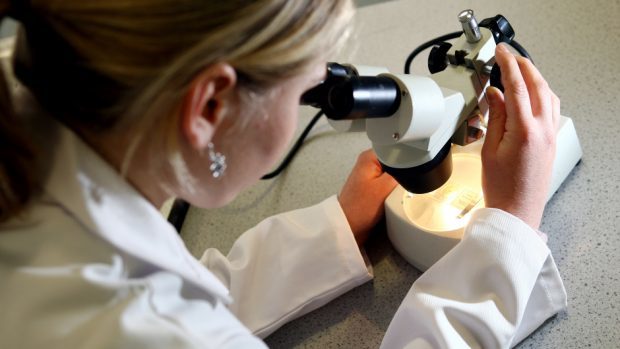Scottish Government has pledged to continue funding for agricultural research in future.
Rural Economy Secretary, Fergus Ewing, paid tribute to a £50million government-funded research programme and said it was a key way for government to invest in the future of the agricultural industry.
The funding, which was paid out in the 2014/15 financial year, was awarded to various research organisations including the James Hutton Institute, Moredun Research Institute, Rowett Institute of Nutrition and Health and the Royal Botanic Garden Edinburgh (RBGE).
Projects in the programme have included the development of a new molecular test for tickborne fever in sheep, and a study into levels of selenium in milk to ensure the selection of cows with optimal mineral status.
Work has also been carried out to identify potato varieties with resistance to late potato blight genes in a bid to improving resistance to the disease.
“Agriculture is the cornerstone of the rural economy. Identifying ways to help farmers and crofters improve efficiency on the farm is a key way for us to invest in the future of the industry,” said Mr Ewing.
“We fund a significant amount of research which can make a difference at a practical level. New tests for tickborne fever in sheep, improving potato resistance to late blight and helping farmers to select the best cows for milk production can all help make our crops and livestock healthier. That in turn can boost sustainability, productivity and profitability of farm businesses.
“We will continue to harness Scotland’s first class research abilities to support our farming industry and maximise the contribution it makes to our economy.”
